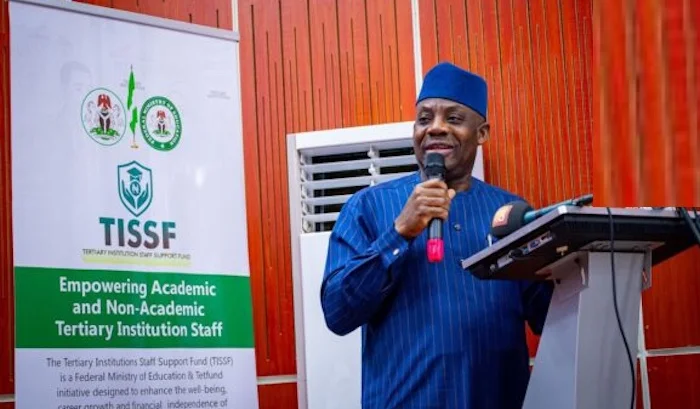On Sunday, October 19, 2025, Nigeria’s Federal Ministry of Education issued a statement reaffirming that Mathematics and English Language remain mandatory for students seeking admission into tertiary institutions.
The announcement, delivered by ministry spokesperson Boriowo Folashade, reversed an earlier claim made on October 14 that Mathematics would not be required for Arts and Humanities programs.
The ministry’s statement, titled “English and Mathematics Remain Compulsory for All O-Level Students,” emphasized the importance of these subjects for communication, critical thinking, and lifelong learning.
The clarification addresses confusion sparked by the initial policy, which suggested a relaxation of requirements for universities, polytechnics, colleges of education, and innovation institutes.
Balancing Flexibility and Standards
The government’s latest policy does not exempt students from taking Mathematics and English in their O-Level exams but introduces flexibility in admission criteria.
Minister of Education Dr. Maruf Tunji Alausa explained that the reform aims to make tertiary education more inclusive.
“We want to ensure capable students aren’t barred due to weaknesses in non-essential subjects,” he said. This approach allows institutions to admit candidates into specific programs where a credit pass in either subject may not be critical, while still requiring all students to attempt both exams.
The reform aligns with global education trends, modernizing Nigeria’s system to recognize diverse student strengths.
It supports equitable access, enabling more learners to pursue higher education without rigid barriers, while maintaining core academic standards.
Addressing Public Concerns
The initial announcement had raised concerns among educators and parents, who feared a dilution of academic rigor. Sunday’s statement clarified that the policy adjustment only affects admission requirements, not the obligation to study and sit for Mathematics and English.
The ministry urged stakeholders to rely on official channels for accurate updates, aiming to curb misinformation circulating online.
The reform reflects the government’s broader vision of enhancing human capital development. By broadening academic pathways, it seeks to accommodate students with varied talents, ensuring fairness without compromising foundational skills.
The ministry highlighted that both subjects remain vital for fostering reasoning and communication skills essential for all fields.
Context and Implications
The policy shift comes amid efforts to modernize Nigeria’s education system, which faces challenges like overcrowded institutions and outdated curricula. The government’s focus on inclusivity aims to address high dropout rates and limited access to higher education, particularly for students from underserved regions.
By allowing flexibility in admission criteria, institutions can prioritize program-specific skills, potentially increasing enrollment in fields like arts, humanities, and vocational studies.
However, the emphasis on mandatory O-Level exams ensures a baseline of proficiency. Schools and parents are encouraged to prepare students for both subjects, reinforcing their role in academic and professional success.
The ministry plans to work with institutions to implement the changes smoothly, ensuring clarity for the 2026 admission cycle.
Looking Forward
This clarification reassures stakeholders that Nigeria values core skills while embracing reform. As the policy takes shape, the government calls for cooperation from educators, students, and families to support its vision of an inclusive education system.
The move signals a commitment to balancing tradition with progress, aiming to empower a new generation of learners to contribute to Nigeria’s growth. Official updates will guide the public as the nation navigates this evolving educational landscape.






